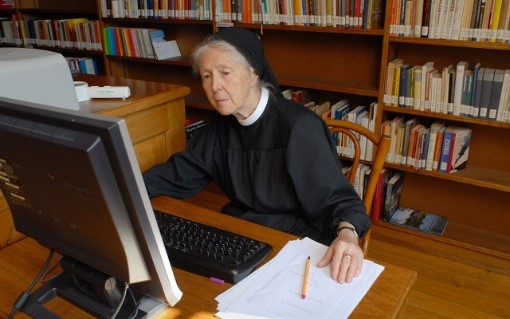Silja Walter was born into the Walter publishing family at Rickenbach on 23 April 1919; her father was also a National Council member. She lived as a nun in Fahr Convent near Zurich for over 60 years. Her work is dominated by her engagement with God, faith and convent life under the Rule of St. Benedict.
She published the volume of poems entitled Erste Gedichte in 1944. After abandoning her studies for health reasons, she entered the Benedictine convent at Fahr in 1948, remaining there under the religious name Maria Hedwig until her death.
That watershed moment in her life is also reflected in her literary output: returning to writing after an extended break, she focuses primarily on convent life and her approach to the Rule of St. Benedict in her wide-ranging later works. Examples include Tanz des Gehorsams oder die Strohmatte (1970), Ruf und Regel (1980) and Das Kloster am Rande der Stadt (1980). She also wrote a large number of chronicle, worship and mystery plays. Silja Walter was further involved in religious service projects relating to the liturgy. Many of her texts were set to church music.
From 1991 onwards, while continuing to write religious works, she also turned to her family history: in the novel Der Wolkenbaum (1991) she reflected on her childhood from the perspective of a young girl, while her final work, Der Kamm der Queen (2011), tells the story of the Walter family of comb-makers from Mümliswil.
Silja Walter’s brother was the writer and publisher Otto F. Walter.
Silja Walter received a number of literary awards and was also granted honorary citizenship of Mümliswil, Rickenbach and Würenlos. She died at Fahr Convent on 31 January 2011.






